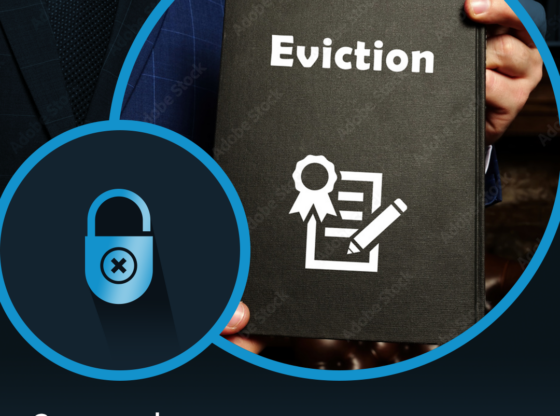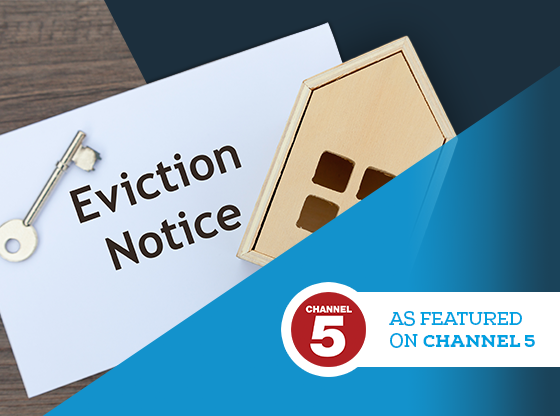Repealing the Section 21 Ground for Possession
On 15 April 2019, the then-Government announced: “Private landlords will no longer be able to evict tenants from their homes at short notice and without good reason.” This was followed by a consultation process which ran between July and October 2019. The consultation paper proposed the abolition of section 21 of the Housing Act 1988.
The government has confirmed its intentions to repeal Section 21 of the Housing Act 1988 in the May 2022 Queen’s Speech, as originally set out in the Renters’ Reform Bill released in late 2019, and “strengthen the rights of tenants.”
Shelter has released statistics claiming that a Section 21 notice has been issud to a tenant every seven minutes since 2019, affecting 230,000 people – although Sajjad Ahmad, the CEO of the British Landlords Association has stated that the overall use of Section 21 notices has in fact been falling since 2015 as more landlords want long term tenants. Landlords are understandably concerned about repealing the Section 21 ground for possession.
What is Section 21?
In normal circumstances, when the extended notice periods are not in place, landlords can evict their tenants under Section 21 by providing them with two months’ notice once their fixed-term contract has come to an end.
Landlords aren’t required to provide their tenants with a reason for eviction, hence the term “no-fault” eviction. In contrast, to serve a Section 8 notice, the landlord needs to prove that the tenant has broken the terms of the tenancy agreement.
What’s changing for Section 21?
One of the proposed changes, as originally set out in the Renters’ Reform Bill, included in the briefing notes to the Queen’s Speech in 2019, is to remove Section 21.
The abolition of Section 21 would put an end to so-called “no-fault evictions” as part of the on-going project to create longer tenancies.
This means landlords will always need to provide their tenants with a reason for ending a tenancy, for example, breach of contract or wanting to sell the property.
Tenants will be able to choose to end the tenancy, as long as they provide sufficient notice to the landlord.
Levelling Up and Housing Secretary Michael Gove said:
“Too many renters are living in damp, unsafe and cold homes, powerless to put it right, and under the threat of sudden eviction.
The New Deal for renters announced today will help to end this injustice, improving conditions and rights for millions of renters.
This is all part of our plan to level up communities and improve the life chances of people from all corners of the country.”
What will replace Section 21?
Repealing the Section 21 ground for possession will inevitably mean creating new grounds for possession. The no fault ground known as the Section 21 ground is effectively the security that property investors rely on when investing in property to let. Landlords ultimately need security that they could gain possession of their property should they need to, whether that is to sell the property, move into or other reason.
Repealing the Section 21 ground for possession without creating new grounds for possession could be catastrophic for the residential property market whereby less investors may be willing to invest into residential property.
In addition to the removal of Section 21, the government has also proposed strengthening the grounds for repossession under Section 8 of the Housing Act 1988.
You can read more about grounds for possession here.
This would not directly replace Section 21, but will strengthen the rights of landlords who want to recover their properties, including when they want to sell or move into the property themselves.
How will these changes to Section 21 affect possessions and tenancy lengths?
The government has also said that it plans to work with the Ministry of Justice and the Courts and Tribunal Service on reforming the court processes for possession, alongside ending Section 21.
However, the government will consider limiting the use of these new Section 8 grounds until the tenancy has lasted for two years. They do note there has been “no consensus” around mandating a tenancy length.
A previous consultation found tenants preferred different tenancy lengths depending on their circumstances, whilst landlords favoured the status quo.
The government has also said any legislation around changes to tenancy lengths will be “accompanied by appropriate safeguards for landlords”. This appears to mean that Repealing the Section 21 ground for possession will mean new grounds for possession are created for landlords in cases where a landlord needs to sell the property or move back into it.
When will Section 21 be abolished?
There is no proposed date for when the changes to Section 21 could come into effect, though, if we look to recent legislation changes, such as the Tenant Fees Act, as a guide, this could take between 18 months to two years.
Advice
If you wish to seek for possession of your property or require any advice on your matter, please complete our enquiry form here for a member of our legal team to contact you. You can also contact us on 020 3903 2000.
Repealing the Section 21 Ground for Possession Video











